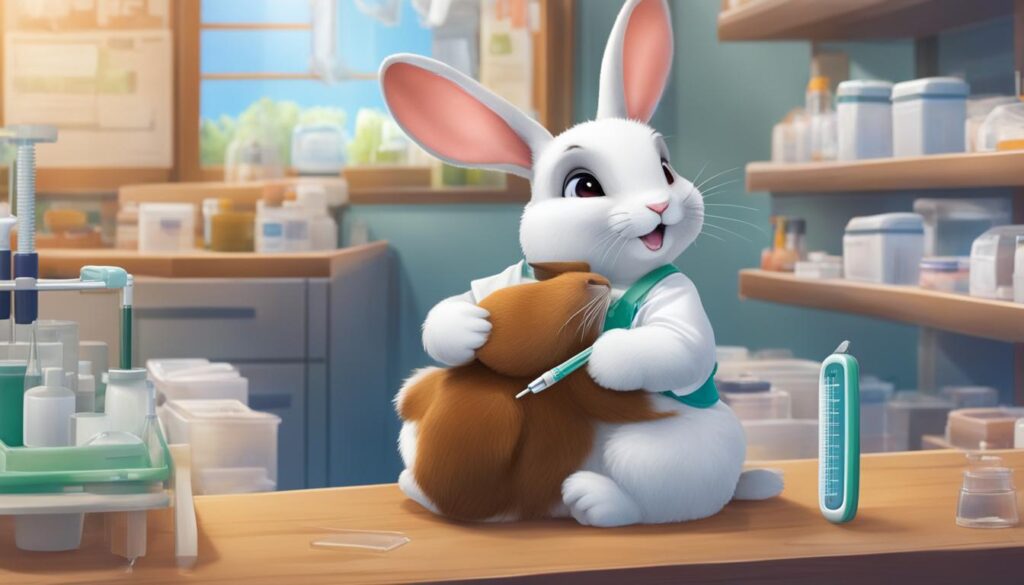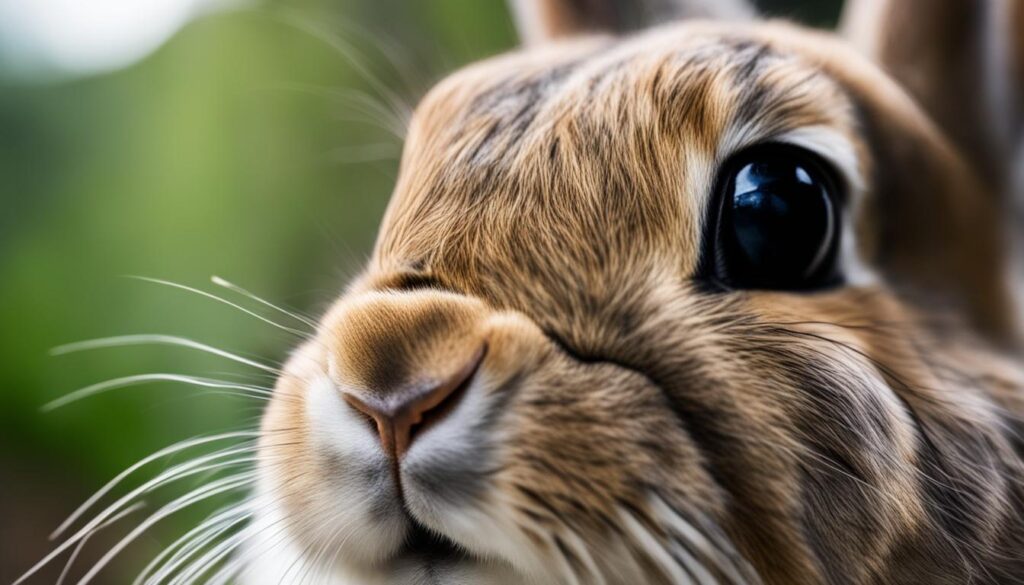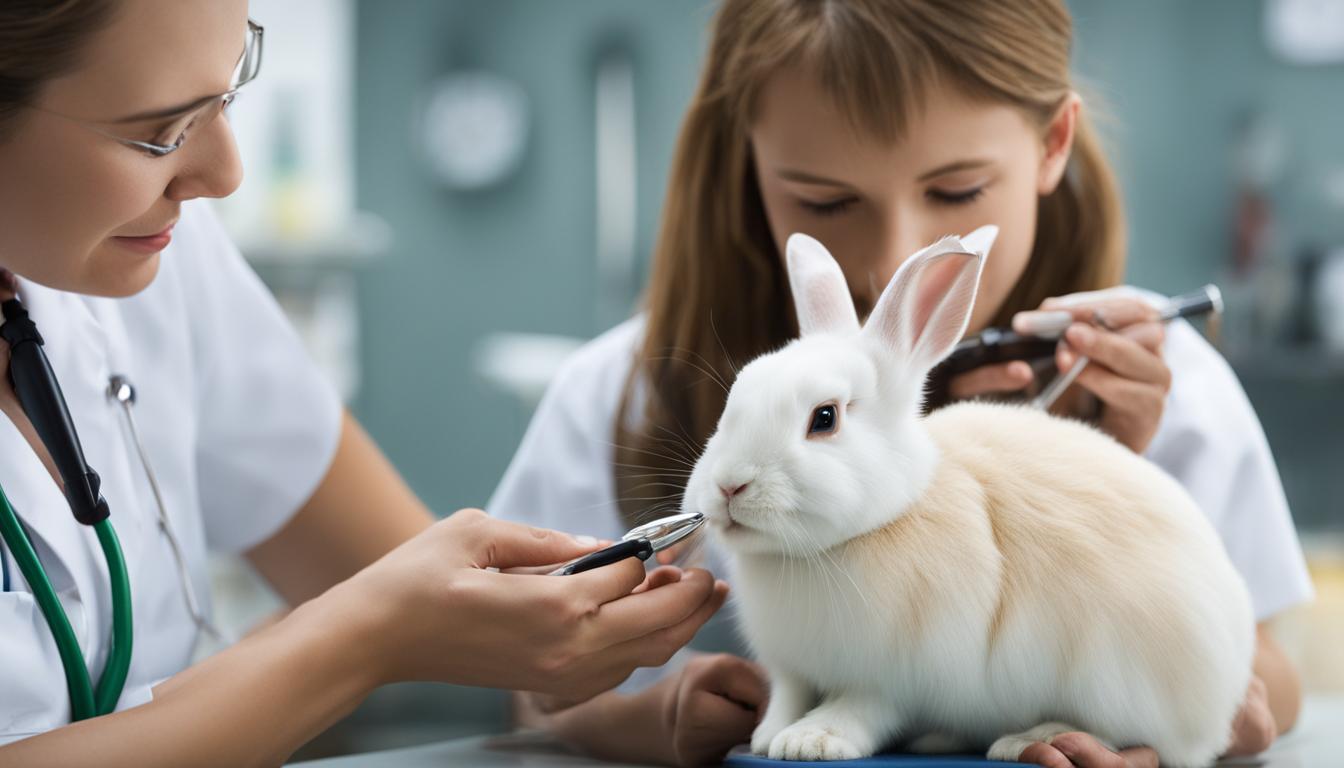Rabbit Healthcare Essentials: Vaccinations, Check-ups, and Common Ailments
When it comes to your rabbit’s well-being, understanding the nuances of rabbit healthcare can make all the difference. As quiet as they are delightful, these furry friends are masters at disguising discomfort, making proactive rabbit veterinary care a cornerstone of responsible pet ownership. Whether it’s arranging timely vaccinations, spotting common ailments, or staying informed with rabbit health tips, your vigilance is vital. With an emphasis on rabbit illness prevention and rabbit disease management, you can ensure that your companion hopper maintains the highest quality of rabbit wellness care.
Key Takeaways
- Annual or biannual vet visits are crucial for preemptive health screening and vaccinations.
- Stay alert to your rabbit’s behavior and physical state to catch early signs of illness.
- Seasonal check-ups before winter can prepare your rabbit for the cold.
- Understanding potential health risks such as fly strike, dental issues, or GI stasis can be lifesaving.
- Regular grooming, diet monitoring, and environmental controls play a role in illness prevention.
- Immediate veterinary care at the onset of symptoms significantly improves outcomes.
Understanding Rabbit Healthcare Needs
As a diligent rabbit owner, your priorities shift naturally towards ensuring the longevity and vitality of your furry companion. Fundamental to this effort is a comprehensive grasp of rabbit healthcare, where regular check-ups and preventive strategies form the bedrock of sustaining optimal rabbit wellness care. Your role in this dynamic is pivotal, requiring both keen observation and prompt action in collaboration with your trusted veterinary care professionals.

A rabbit’s health can be a delicate balance, delicately shielded by an instinctual veneer of normalcy even amidst adversity. That’s why acknowledging subtle behavioral shifts can yield clues to underlying issues. Much like the pieces of a larger puzzle, your observations, alongside professional preventive care, assemble a complete picture of your rabbit’s health. With rabbit vet visits, not only are existing concerns addressed, but future potential ailments can be averted.
Why Regular Veterinary Check-ups are Vital
In the unique anatomy of your pet rabbit lies a propensity for silent suffering — a defense against predators in the wild that translates to masked symptoms in domestic care. It’s here that rabbit health check-ups stand as essential recurring events in your calendar. Address each notable change — be it a lack of appetite or decreased energy — with a vet consultation, considering it an alarm bell signaling the need for professional insight. These visits offer an opportunity for your rabbit to receive a thorough assessment, ensuring that their health remains unimpaired by the stealthy onset of potential dangers, such as the insidious fly strike.
Preventative Care and Its Importance in Rabbit Health
Prevention is not merely a buzzword; it’s a crucial stratagem in safeguarding your rabbit’s well-being. Periodic inspections for cleanliness, precise dietary management, and weight monitoring not only support ongoing health but serve as a line of defense against ailments that lurk undetected. Little surpasses knowledge as a tool — familiarizing yourself with your rabbit’s normal patterns equips you with the ability to discern when they deviate from their baseline, ultimately expediting the process from detection to treatment—a cycle where prompt action can be life-saving.
Armed with these rabbit health tips and an understanding of the critical nature of regular rabbit health check-ups and preventive care, you stand prepared to offer your rabbit a life of comfort and joy. Remember, their health is in your hands, and with every thoughtful step you take, you enhance the chances for a happier, healthier hop along the way.
Spotting the Signs: How to Tell If Your Rabbit Is Unwell
As a cherished member of your family, your rabbit depends on you to notice when something might be amiss with its health. Since early identification of rabbit illness is crucial, being aware of both physical indicators of rabbit health problems and behavioral changes in sick rabbits is essential. Let’s explore the critical signs that could indicate your bunny needs attention and how responding to rabbit ailments in a timely manner can make a difference.
Recognizing the subtleties in your rabbit’s demeanor is the key to identifying rabbit illness. A lively rabbit that suddenly becomes lethargic or a curious one that starts to avoid movement could be signaling that they are not feeling well. Pay close attention to their posture too; a rabbit sitting hunched up or not wanting to move could be in discomfort or pain. Are they eating and drinking as usual, or has there been a noticeable decline in their appetite? A disruption in normal eating patterns can often be a precursor to serious health issues.
Here’s a concise guide to aid you in monitoring your rabbit closely for any distressing signs:
- **Activity Level**: A marked decrease in playfulness or movement
- **Posture**: Hunching over or reluctance to move that departs from usual behavior
- **Eating Habits**: Skipping meals or showing disinterest in food for over 12 hours
- **Physical Appearance**: Unusual signs such as a runny nose, cloudy or runny eyes, or breathing difficulties
- **Fur Condition**: Look out for patches of loss or changes in the fur’s texture
- **Ear and Nail Cleanliness**: Ensure ears are free of wax buildup and nails are of a comfortable length
- **Bathroom Habits**: Monitor for changes in defecation or urination; soiled fur near the bottom, especially, could suggest a problem
Do not underestimate the relevance of these symptoms; even a minor shift in their usual behavior or physical state could point to a larger issue. Should you notice any of the above, it’s imperative to act with urgency. Reach out to your veterinarian at the first sign of trouble since delays might aggravate the condition.
Your proactive efforts in responding to rabbit ailments involve more than just responding to crises. By setting routine health check-ups, you gain the advantage of preventive care. And remember, your observations at home are an extension of this care, adding vital information that could be critical to your rabbit’s health.

Lastly, when it comes to the health of your rabbit, the adage “better safe than sorry” rings particularly true. Your close observation coupled with swift veterinary intervention can ensure that your rabbit, a discreet sufferer by nature, receives the care needed to return to its happy, healthy self.
Rabbit Vaccinations: Protecting Your Pet Against Diseases
Securing your beloved rabbit’s health involves a comprehensive battle plan against several invisible threats, prominently inclusive of myxomatosis and viral haemorrhagic disease. These afflictions can rapidly escalate from unnoticed to fatal, underscoring the importance of a well-timed vaccination schedule for rabbits.

Begin this proactive approach with the myxomatosis vaccination, designed to counter the disease spread by biting insects, such as fleas and mosquitoes, or by direct contact with carriers. Despite not guaranteeing total protection, the vaccination markedly increases a rabbit’s chance of survival. Enlightened by this knowledge, you’ll want to maximize your pet’s defenses with a biannual vaccination in pest-prevalent regions, or an annual shot in other areas.
Simultaneously, the threat of viral haemorrhagic disease looms—a formidable virus capable of withstanding environmental variations and spreading via multiple vectors. Prioritizing your rabbit’s yearly vaccination against this disease can be a life-saving decision. Coupled with stringent hygiene and environmental controls such as rabbit-proof fencing and a keen eye on cleanliness, you help build an impenetrable shield for your pet.
Remember, your informed choices and adherence to a vaccination schedule ensure the wellbeing of your rabbit, transforming you into a guardian against these insidious diseases.
Your involvement doesn’t end at the vet’s office. Remaining vigilant about environmental precautions further fortifies this protective barrier. Here are some practical steps to maintain a safe habitat for your rabbit:
- Employ mosquito-proof screens on hutches to dissuade pesky insects.
- Regularly treat your pets for fleas with vet-approved products.
- Avoid stagnant water near your home to reduce mosquito breeding grounds.
- Keep wild rabbits at bay with appropriate fencing to prevent cross-contamination.
Be the herald of health for your hoppy friend by scheduling regular rabbit vaccinations, and remember—prevention is the clearest path to wellness.
Common Ailments in Rabbits and Their Management
Navigating the landscape of rabbit common ailments requires an attentive eye and an informed mind. Your rabbit may encounter a range of issues, such as dental health problems, the grave condition of gastrointestinal stasis, or the dreaded fly strike, each demanding timely detection and adept management. Through this section, we’ll touch upon the essentials of identifying and handling these concerns — a vital step in proficient rabbit disease management.
Addressing Dental Health Issues
In the world of dental health in rabbits, misalignments and overgrowth are more than cosmetic issues—they’re red flags for possible distress. These conditions often arise from diets lacking in crucial nutrients, leading to difficulties in eating and potential severe complications. Your regular at-home check-ups must include examining your rabbit’s teeth for any signs of irregularities. Should concerns such as malocclusion or elongated teeth present themselves, it is imperative you seek veterinary care to rectify these issues and to discuss how diet alterations might benefit your rabbit’s dental health.
Gastrointestinal Stasis: A Life-Threatening Condition
Among the most critical health threats to your rabbit is gastrointestinal stasis, a condition that severely disrupts the digestive process. Often a consequence of a fiber-starved diet, this ailment halts the normal movement within the gut, which can quickly become life-threatening. To prevent this, ensure your rabbit’s diet is rich in fibrous foods like hay, which can encourage healthy gut motility. Watch for signs such as diminished appetite or fewer fecal pellets, and consult your veterinarian if gastrointestinal stasis is suspected.
Fighting the Risk of Fly Strike in Rabbits
As the warmth of spring unfolds, so does the risk of fly strike, a perilous condition that can escalate swiftly and lethally. Particularly vulnerable are those rabbits that struggle with self-cleaning due to obesity, arthritis, or dental issues. You can aid in fly strike prevention by conducting bi-daily checks, especially during the hotter months, and keeping your rabbit’s living area clean to deter flies. Specialised products like Rearguard can be useful as part of your strategy, alongside regular grooming to maintain a clean and healthy coat. Remember, prompt veterinary action is essential should your rabbit fall victim to this affliction, emphasizing the importance of prompt and proactive care.
FAQ
How often should rabbits receive veterinary check-ups?
Rabbits should have at least semiannual veterinary visits to ensure they are healthy and prepared for the changing seasons, with an optimal visit scheduled before winter. These check-ups allow for a full health assessment and any necessary vaccinations or treatments.
What are the key indicators of a healthy rabbit during a check-up?
A healthy rabbit should have bright, clear eyes, clean ears, a discharge-free nose, and well-aligned teeth with a slight overbite. Additionally, the vet will check the rabbit’s feet, nails, fur, and skin for any signs of sores, overgrown nails, or matted hair, and assess gland function, mobility, and dietary habits.
How can I tell if my rabbit is sick?
Since rabbits are skilled at hiding illness, it’s important to observe them closely for subtle changes. These can include quieter behavior, lethargy, or a lack of appetite persisting for over 12 hours. Also, watch for physical signs like a hunched posture, reluctance to move, runny nose or eyes, and changes in fur condition or toileting habits. Any of these signs call for immediate veterinary care.
What vaccinations do rabbits need?
Rabbits require vaccinations against myxomatosis and viral haemorrhagic disease, both of which can be deadly. The frequency of vaccination can vary depending on the risk of exposure but typically include an annual regimen, with biannual vaccinations suggested in high-risk areas.
What common health issues should I be aware of in my rabbit?
Rabbits are prone to dental problems, gastrointestinal stasis, and fly strike, among other issues. Dental problems often arise from poor diet and can lead to overgrown or misaligned teeth. Gastrointestinal stasis, caused by a lack of fiber, prevents normal bowel movement and can be fatal if not treated. Fly strike, the infestation by fly larvae, is more common in the warmer months and can severely affect rabbits unable to clean themselves due to obesity, arthritis, or dental issues.
How can I prevent health issues in my rabbit?
Preventing health issues in rabbits involves regular home health checks, a balanced diet rich in fiber, keeping the rabbit’s living area clean, monitoring for signs of illness, and maintaining up-to-date vaccinations. Additionally, providing a comfortable and hygienic living environment, aiding in grooming if necessary, and minimizing stress all contribute to a rabbit’s well-being.
Why is prevention important in rabbit healthcare?
Preventative care is crucial in rabbit healthcare as it can thwart the progression of diseases, prevent infections, and minimize the risk of serious health problems. It includes maintaining good nutrition, regular vet visits, vaccinations, and ensuring a safe and stress-free environment for your rabbit.
How do I manage dental health issues in my rabbit?
To manage dental health issues, ensure that your rabbit receives a high-fiber diet with plenty of hay, which helps grind down their constantly growing teeth. Regular veterinary dental assessments will help identify and treat any overgrowth or misalignment issues before they become severe.
What is gastrointestinal stasis and how can I prevent it?
Gastrointestinal stasis is a condition where the digestive system slows down or stops completely, leading to a buildup of harmful bacteria. The best prevention is a diet high in fiber such as hay and fresh greens, keeping your rabbit hydrated, and encouraging regular exercise to stimulate digestion.
How can I protect my rabbit from fly strike?
Protect your rabbit from fly strike by keeping its living space clean, regularly checking for any dirt or waste on its body, especially during the warmer months, and by maintaining a healthy weight and grooming habits to ensure your rabbit can clean itself properly. If your rabbit is particularly at risk, discuss preventive measures with your vet, such as safe insect repellents or additional environmental controls.


